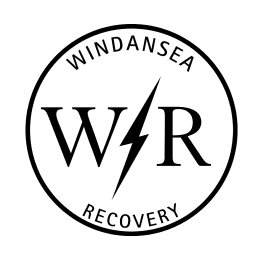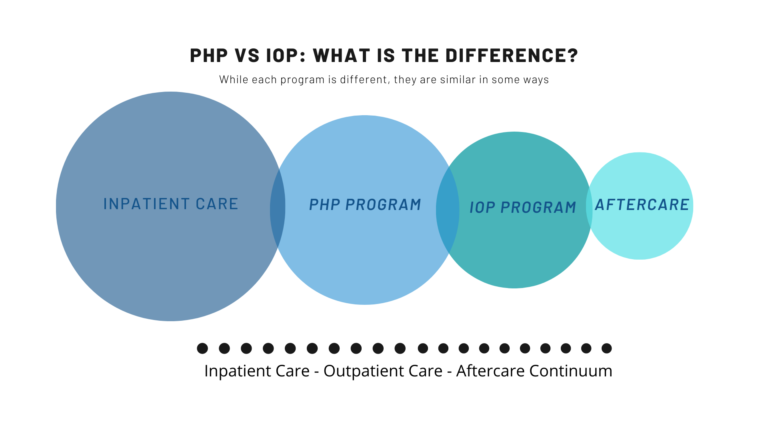For individuals managing depression with Lexapro (escitalopram), understanding the potential interactions with alcohol is crucial for both safety and treatment effectiveness. At Windansea Recovery, we often work with clients who have questions about medication interactions with substances like alcohol. This guide explores the relationship between Lexapro and alcohol, the risks of combining them, and why alcohol consumption and alcohol addiction can be particularly problematic for those with depression.
Understanding Lexapro
Lexapro belongs to a class of medications called selective serotonin reuptake inhibitors (SSRIs). It works by increasing the levels of serotonin—a neurotransmitter that helps regulate mood, anxiety, and happiness—in the brain. Prescribed primarily for major depressive disorder and generalized anxiety disorder, Lexapro helps many people manage their symptoms and improve their quality of life.
Like all medications, Lexapro works best when taken as prescribed and when potential interactions with other substances are minimized. One of the most significant interactions to be aware of is with alcohol.
The Dangerous Combination: Lexapro and Alcohol
Combining Lexapro with alcohol can create several serious problems:
1. Enhanced Central Nervous System Depression
Both Lexapro and alcohol affect the central nervous system (CNS). While they work through different mechanisms, their combined effect can lead to excessive CNS depression. This may manifest as:
- Extreme drowsiness and sedation
- Impaired coordination and balance
- Slowed or difficult breathing
- Decreased cognitive function and alertness
- Increased risk of accidents and injuries
2. Worsened Side Effects
Alcohol can intensify many of Lexapro’s potential side effects, including:
- Dizziness and lightheadedness
- Nausea and gastrointestinal distress
- Headaches
- Sleep disturbances
- Fatigue
3. Reduced Medication Effectiveness
Alcohol can potentially interfere with how effectively Lexapro manages depression and anxiety symptoms. This interference occurs in several ways:
- Alcohol may reduce the bioavailability of the medication
- Alcohol’s depressant effects can counteract the therapeutic benefits of Lexapro
- Consistent drinking can disrupt the steady-state levels of the medication in your system
4. Increased Risk of Suicidal Thoughts
Both alcohol and the early stages of SSRI treatment can sometimes be associated with an increased risk of suicidal thoughts, particularly in younger adults and adolescents. Combining these substances may potentially amplify this risk.
5. Liver Strain
Both alcohol and Lexapro are metabolized by the liver. Using them together creates additional work for this vital organ, potentially leading to increased stress on liver function over time.
Alcohol and Depression: A Problematic Relationship
Beyond the specific interactions with Lexapro, alcohol consumption presents particular challenges for anyone dealing with depression:
Alcohol Is a Depressant
Despite the initial “high” or relaxation some people feel when drinking, alcohol is fundamentally a central nervous system depressant. For someone already struggling with depression, adding another depressant to their system can:
- Worsen depressive symptoms
- Trigger or intensify depressive episodes
- Contribute to emotional instability
- Deepen feelings of hopelessness or sadness
Disruption of Brain Chemistry
Depression involves imbalances in brain neurotransmitters, including serotonin, dopamine, and norepinephrine. Alcohol consumption further disrupts these delicate chemical balances:
- Initially, alcohol increases dopamine, creating temporary pleasure
- With continued drinking, it depletes dopamine, worsening mood
- Alcohol reduces serotonin levels, which are already compromised in depression
- Alcohol interferes with the brain’s natural reward pathways
Sleep Disturbance
While alcohol might initially help some people fall asleep, it significantly reduces sleep quality by:
- Disrupting REM sleep (the restorative phase of sleep)
- Causing middle-of-the-night waking
- Leading to less restful sleep overall
Poor sleep quality is strongly associated with worsened depression symptoms, creating a negative cycle that’s difficult to break.
Self-Medication Trap
Many people with depression turn to alcohol in an attempt to “self-medicate” their symptoms. This approach tends to backfire for several reasons:
- Initial relief is followed by worsened symptoms when the alcohol wears off
- Tolerance develops, requiring more alcohol to achieve the same temporary relief
- Risk of developing alcohol dependence increases
- Underlying depression remains untreated or is treated less effectively
Treatment Interference
Regular alcohol consumption can interfere with depression treatment in multiple ways:
- Reducing medication effectiveness
- Making therapy less productive
- Limiting the benefits of other treatment approaches
- Creating mixed messages about commitment to recovery
Signs That Alcohol Is Affecting Your Depression Treatment
Consider the following warning signs that alcohol might be interfering with your depression treatment:
- Depression symptoms worsen after drinking
- Increased anxiety, especially during hangovers
- Medication side effects become more noticeable
- Mood swings become more pronounced
- Sleep quality decreases
- More frequent thoughts about reducing or stopping medication
- Missing therapy appointments or medication doses
- Increased conflict in personal relationships
The Holistic Approach to Recovery at Windansea
At Windansea Recovery, we understand that managing depression effectively often requires addressing multiple aspects of wellbeing, including substance use patterns. Our holistic approach to treating co-occurring depression and alcohol use issues includes:
Comprehensive Assessment
We conduct thorough evaluations to understand how depression and alcohol use interact for each individual, creating personalized treatment plans that address both concerns simultaneously.
Medically-Supported Care
Our medical team provides expert guidance on medication management, including safely navigating the use of antidepressants like Lexapro while addressing alcohol use patterns.
Integrated Therapeutic Approaches
We offer evidence-based therapies that effectively address both depression and substance use, including:
- Cognitive Behavioral Therapy (CBT)
- Dialectical Behavior Therapy (DBT)
- Mindfulness-Based Cognitive Therapy
- Trauma-Informed Care
Holistic Wellness Practices
Our La Jolla location provides the perfect setting for incorporating holistic approaches that support recovery:
- Beach walks and outdoor activities that naturally boost mood
- Nutritional counseling to support brain health
- Mindfulness and meditation practices
- Yoga and movement therapies
- Sleep hygiene education
Community and Connection
Depression often thrives in isolation, while recovery flourishes in connection. Our community-based approach provides:
- Group therapy for shared learning and support
- Family involvement in the recovery process
- Connection to ongoing support resources
- Community activities that build meaningful relationships
Steps Forward: Making Informed Decisions About Lexapro and Alcohol
If you’re currently taking Lexapro and consuming alcohol, consider these important steps:
1. Consult Your Healthcare Provider
Never make changes to your medication regimen without professional guidance. Your doctor or psychiatrist can:
- Evaluate your specific situation
- Provide personalized advice about Lexapro and alcohol
- Make adjustments to your treatment plan if needed
- Monitor for any concerning developments
2. Be Honest About Alcohol Use
When speaking with healthcare providers, be transparent about your alcohol consumption. This information is crucial for proper treatment and is kept confidential.
3. Consider a Gradual Approach
If you currently drink regularly and take Lexapro, abruptly stopping alcohol could potentially lead to withdrawal symptoms. Work with healthcare professionals on a safe approach.
4. Explore Alternative Coping Strategies
If you’ve been using alcohol to manage stress, anxiety, or social situations, explore healthier alternatives:
- Mindfulness and meditation techniques
- Physical exercise
- Creative outlets
- Support groups
- Therapy-based coping skills
Finding Support for Recovery
At Windansea Recovery, we specialize in helping individuals navigate the complex relationship between depression, medication management, and substance use. Our serene coastal environment in La Jolla provides the ideal setting for healing both mind and body.
If you or someone you love is struggling with depression and alcohol use, we’re here to help. Our comprehensive approach addresses both concerns simultaneously, providing the support needed for sustainable recovery and improved quality of life.
Contact us at (619) 815-2555 to learn more about our programs and how we can support your journey toward wellness.
Disclaimer: This article is for informational purposes only and does not constitute medical advice. Never change your medication regimen or begin/stop substance use without consulting with a qualified healthcare provider. If you are experiencing a medical emergency, call 911 or go to your nearest emergency room immediately.



























